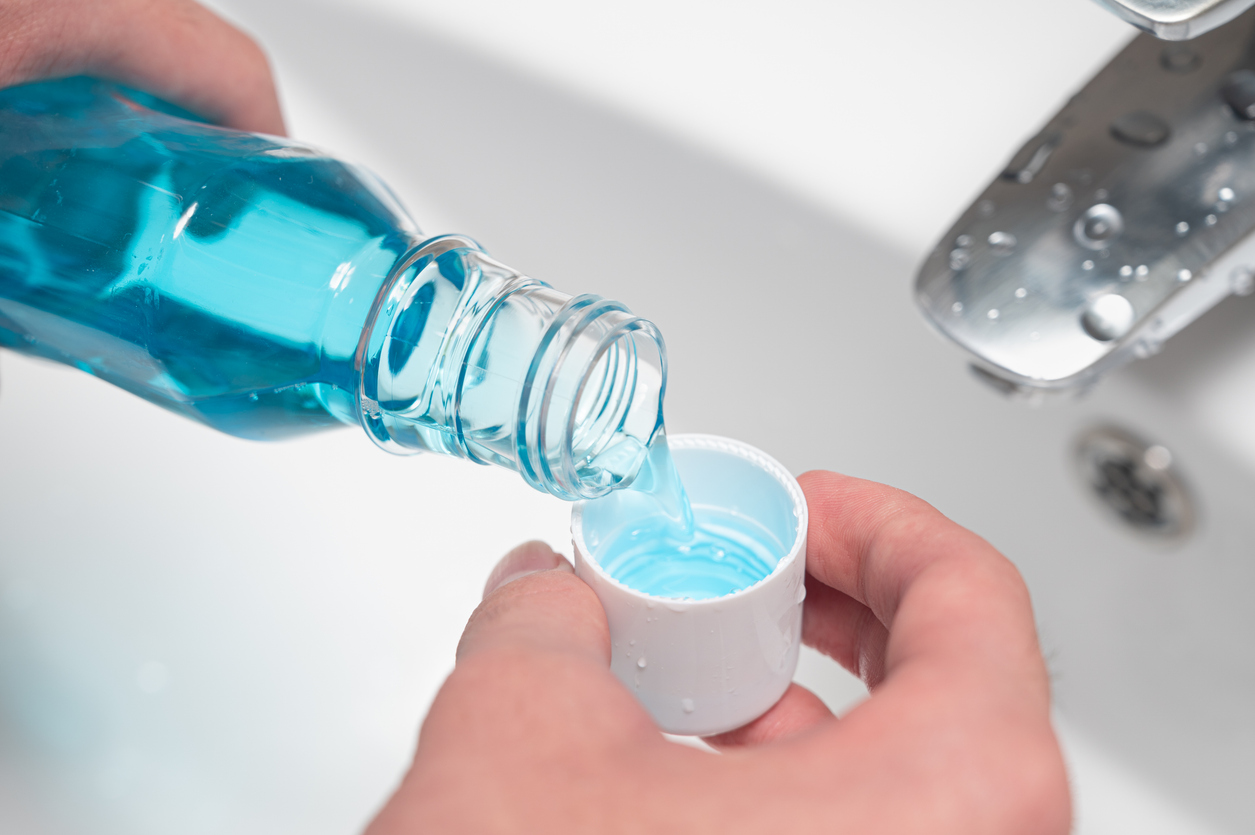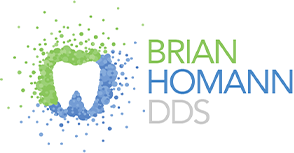Most people know that brushing and flossing are the foundation of good oral hygiene. But what about mouthwash? Many patients ask, “Is mouthwash necessary? or “Does mouthwash really work?”
While not everyone needs it daily, mouthwash can play an important role in keeping your mouth healthy and clean. Some people incorporate mouthwash into their daily care routine simply because it gives their mouth and breath a fresh feeling. If you want to learn more about this dental hygiene product and whether you should use mouthwash every day, continue reading.

What Is Mouthwash?
Mouthwash is a liquid solution used to rinse and gargle. Depending on the type you buy, it may contain:
- Fluoride to help strengthen tooth enamel
- Antimicrobial agents to reduce bacteria in the mouth and bad breath
- Alcohol, as a solvent and mild antimicrobial agent
- Whitening agents to brighten your smile
- Flavoring to freshen breath and improve the taste of the solution
Mouthwash is meant to complement regular brushing and flossing, not replace them. This is because mouthwash doesn’t actually remove dental plaque. It can simply kill the bacteria within the plaque that causes tooth decay and gum disease. Some types of mouthwash are only made to help whiten teeth or freshen breath.
One great thing about mouthwash is that it can reach areas of the mouth that may be difficult to clean effectively with a toothbrush. This, along with other benefits, can make mouthwash an important addition to your daily dental care routine. However, it should be noted that mouthwash containing alcohol is not recommended, as it may cause irritation and dry mouth.
Is Mouthwash Necessary?
The answer depends on your oral health needs. For some people, mouthwash may not be strictly necessary every day. But for many, it can provide extra protection and benefits.
For example, mouthwash can:
- Reach areas in your mouth that are harder to clean with a toothbrush or floss
- Kill bacteria that cause bad breath
- Help lower your risk of gum disease and cavities
- Help reduce plaque and gingivitis (some varieties)
So while mouthwash may not be essential for everyone, it can make a big difference for those who want an extra layer of defense against dental health problems.
How Important Is Mouthwash for You?
When thinking about how important mouthwash is, consider your personal dental health. People with a history of cavities, gum disease, or tooth staining may benefit more from daily use.
Fluoride-based rinses, in particular, help strengthen enamel and protect against tooth decay. On the other hand, if you maintain excellent brushing and flossing habits and see your dentist regularly, mouthwash may simply serve as a helpful addition rather than a necessity.
There are hundreds of types of mouthwash available for purchase in stores across the United States. Not all brands contain antibacterial properties that protect against bacteria that cause disease and decay. Additionally, not all contain fluoride or alcohol, so it’s important to look for the right product for your needs.
Dr. Brian Homann recommends a fluoride-based mouthwash without alcohol. Washes containing alcohol can cause mouth irritation and dryness.
Oral Rinse VS Mouthwash
The terms “oral rinse” and “mouthwash” are often used interchangeably to refer to the same product. Both terms describe a liquid solution used to rinse and gargle for oral hygiene purposes. However, some oral care products may differentiate between the two terms based on their intended use or specific formulation.
For example, mouthwash often contains alcohol, which acts as a solvent and antiseptic. Mouth rinse typically does not contain alcohol. This makes it gentler and less likely to irritate sensitive oral tissues.
Mouthwash is mainly designed to reduce oral bacteria, freshen breath, and may contain therapeutic ingredients, like fluoride. Mouth rinse can describe several products, including fluoride rinses or medicated rinses, which are intended to deliver a specific active ingredient for protection or treatment.
In essence, while the terms may vary in their usage, both oral rinses and mouthwashes serve the purpose of improving oral hygiene and promoting smile health. However, rinses without alcohol that contain fluoride are recommended, as they are both gentle and effective.
Is Mouth Rinse Necessary?
Just like mouthwash, mouth rinse isn’t necessary for everyone, but it can be helpful for some people. If you’re prone to cavities, gum disease, or bad breath, using a rinse with fluoride or antibacterial properties can add extra protection. For others with healthy habits and no ongoing issues, a rinse may be more of an optional step in your oral hygiene routine than a requirement.
Should I Use Mouthwash Every Day?
Here are some things to consider if you’re wondering whether or not you should be using mouthwash daily:
- Daily use may help improve your oral health if you’re prone to cavities, gum disease, tooth staining, or bad breath. However, it’s always important to schedule regular dental cleanings to protect your smile.
- Occasional use is fine if you just want fresher breath now and then.
- Children under 6 should not use mouthwash unless directed by a dentist, as they may accidentally swallow it.
Some people may notice irritation if a product contains alcohol. Alcohol-free mouthwashes are recommended and are often more comfortable to use every day.
Schedule Your Next Dental Check-Up
Whether you use mouthwash daily or not, the most important step for long-term oral health is regular dental visits. Along with brushing and flossing, professional cleanings help prevent problems before they become serious, like cavities and gum disease.
If you’re due or overdue for your next cleaning and exam, come see us in Elk Grove Village at Brian Homann, DDS. We offer general dentistry services for patients of all ages and can help you build the right oral care routine for your smile. We aim to maintain your dental health by providing you with quality, compassionate dental care and professional guidance. Contact us today to set up your appointment!

